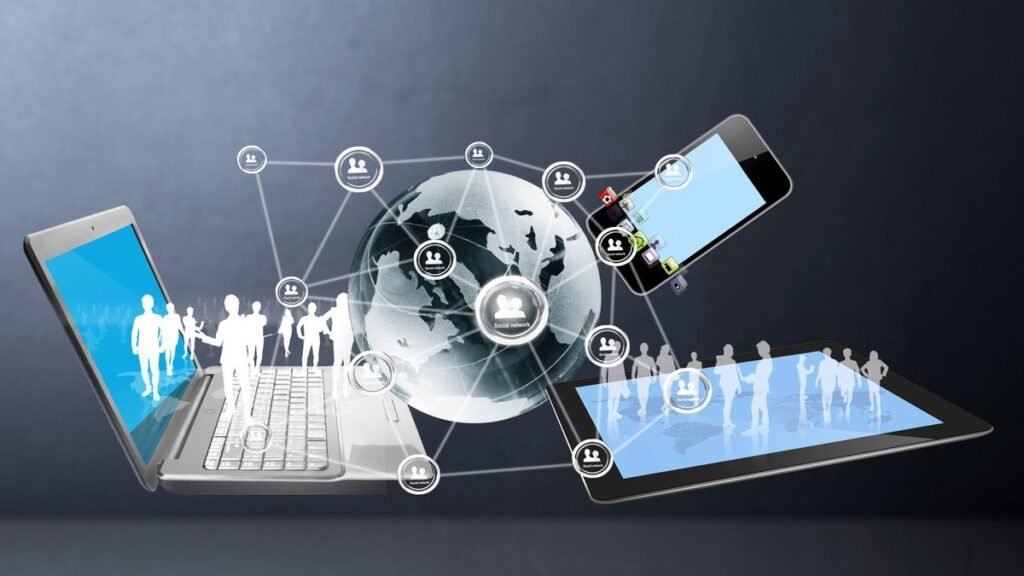Technology and Society Shaping the Future Together

In Technology and Society, We face both fascinating opportunities and complex problems as we stand at the nexus of rapidly advancing technology and changing societal demands. Technology has a significant and wide-ranging impact on civilization, influencing economies, cultures, and even our day-to-day existence. As we look to the future, it is crucial to comprehend this relationship to optimize the advantages of technology and guarantee that it promotes the welfare of all people.
Technology is Transforming Society
Technology has boosted innovation in many industries and revolutionized how people live, work, and interact. Blockchain, automation, and AI have increased output, created new business models, and accelerated decision-making. The gig economy and digital platforms offer flexible jobs. However, they also raise concerns about workers’ rights and job displacement. The technologies are also transforming labor marketplaces.
Advances in biotechnology, genetics, and telemedicine are improving patient care, diagnosis, and global access to healthcare. Big data and AI are transforming medicine for better disease management and personalized treatment. Social media and cell phones have revolutionized communication and information gathering. This raises privacy, mental health, and misinformation concerns.

Technological advances in sustainable agriculture, electric transportation, and renewable energy may mitigate climate change. Technology generation and disposal have environmental impacts that must be handled. Technology has great potential but must be managed to minimize its effects on the environment, society, and ethics.
Future of Technology and Society
As we look ahead, it’s clear that the relationship between technology and society will continue to evolve in unforeseen ways. Here are some possible future scenarios:
- AI and Human Augmentation: Advances in AI and biotechnology could lead to enhanced cognitive and physical human abilities. This could open up new possibilities for human potential and raise ethical questions about equity, consent, and what it means to be human.
- Ubiquitous Connectivity: The rollout of 5G, combined with the expansion of the Internet of Things (IoT), could create an even more interconnected world. While this could enable smarter cities, better healthcare, and more efficient industries, it raises concerns about security, surveillance, and the concentration of power in tech monopolies.
- Space Exploration and Colonization: The next frontier for human technology could be space. Advancements in space exploration—driven by government agencies and private companies—could lead to new opportunities for resource extraction, colonization, and the search for extraterrestrial life.
- Crisis Response and Resilience: Technology will be pivotal in addressing global crises, from pandemics to climate change. The future may see more advanced systems for responding to emergencies, coordinating global efforts, and building resilience in the face of unpredictable challenges.
Also Read: Reports lowest Bitcoin Exchange Reserves In Years
In Summary
Together, ethical innovation and conscious policymaking may improve technology and society. Technology may fix global issues. However, consider its hazards. Technology can boost government, commercial, technological, and community cooperation, promoting justice, equity, and sustainability.
Technology should optimize human potential and help everyone succeed in society. To shape the future, we must be intentional about the technology we create, use, and share while minimizing its drawbacks. It is not whether technology will change the world but how we can improve it.
[sp_easyaccordion id=”5234″]
